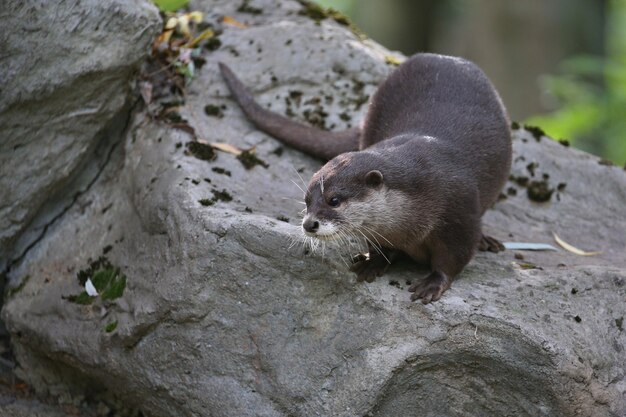Fascinating Facts about Possums

Possums are marsupials that belong to the family Didelphidae.
There are over 100 different species of possums.
Possums are native to Australia, New Guinea, and Sulawesi.
The common brushtail possum is one of the most well-known species of possums.
Possums are nocturnal animals, meaning they are most active at night.
Possums have a prehensile tail, which means they can use it to grasp and hold onto things.
Female possums have a pouch on their belly where they carry and nurse their young.
Possums primarily eat vegetation, but they are also known to eat small animals like insects and birds.
Possums have a specialized organ in their stomach called a caecum, which helps them digest plants.
Possums are excellent climbers and are able to scale trees with ease.
Possums have adapted to be able to withstand extremely cold temperatures.
Possums have a strong immune system and are resistant to many diseases, including rabies.
Possums have sharp teeth and can bite if they feel threatened.
Despite their reputation for being pests, possums play an important role in the ecosystem by controlling pests like insects and rodents.
Possums have a unique defense mechanism called playing possum, where they feign death to avoid predators.
Possums have a lifespan of about 2-4 years in the wild.
Possums have adapted to urban environments and are often found in cities and suburbs.
Possums have a keen sense of smell and use it to locate food.
Fascinating Facts about Possums part 2
Baby possums are called joeys and are born underdeveloped, requiring them to crawl into their mother’s pouch.
Possums have a relatively low body temperature compared to other mammals.
Possums are excellent swimmers and can cross rivers and streams with ease.
Possums are known for their distinctive hissing and growling sounds when they feel threatened.
Possums are known to have a very high reproductive rate, with some species being able to produce several litters a year.
Possums are territorial animals and mark their territory using scent glands.
Possums are important seed dispersers, as they eat fruit and spread the seeds through their droppings.
Possums have a strong maternal instinct and will fiercely defend their young.
Possums have sharp claws on their feet that help them grip onto branches and surfaces.
Possums have excellent night vision, allowing them to navigate in the dark.
Possums have a varied diet depending on their habitat, including nectar, leaves, flowers, and even garbage.
Possums have a unique reproductive system where the female has two uteri and can produce two litters at the same time.
Possums are solitary animals and prefer to live alone, except during the breeding season.
Possums have a flexible diet and can adapt to changes in food availability.
Possums have a strong sense of hearing, which helps them detect predators.
The ringtail possum gets its name from its long, curled tail that forms a ring.
Possums have a pouch that opens towards their tail, unlike kangaroos and wallabies whose pouches open towards their head.
Possums are highly adaptable and can be found in a variety of habitats, from forests to urban areas.
Possums are not rodents, despite their appearance.
Possums have thumbs on their hind feet, which helps them grip branches and objects.
Possums are excellent jumpers and can leap up to 4 meters in distance.
Possums are known for their unique fur patterns, which vary across different species.
Possums are generally not aggressive towards humans and will only attack if provoked.
Possums use their whiskers to help navigate and sense their surroundings.
Possums are good at camouflage and can blend into their surroundings to avoid predators.
Possums have been introduced to some areas outside of their native range, leading to concerns about their impact on local ecosystems.
Possums have been a part of indigenous cultures, with some tribes considering them to be sacred animals.

